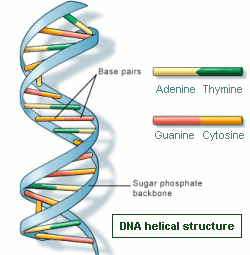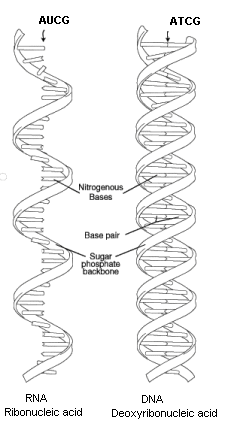|
Evolution ... or Intelligent Design ?
|
It seems that there's a recent interest in so-called Intelligent Design, to explain those characteristics of plants and animals that scientific types
... uh, cannot explain.
>Huh?
In Darwin's theory of evolution (and refinements of that theory), modern living things evolved over jillions of years slowly, by small and random
changes in their DNA structure, and the life form accommodated / adapted to changes in their environment, with those unable to adapt becoming extinct
(that's "natural selection"), and ...
>No radical, abrupt changes?
Well, that's acceptable in modern Theories of Evolution. Cosmic radiation (or other such influences) might cause more dramatic changes in the DNA structure.
Charles Darwin said (in his Origin of Species):
If it could be demonstrated that any complex organ existed which could not possibly have been formed by numerous, successive, slight modifications, my theory [of natural selection] would absolutely break down.
>And what's this Intelligent Design stuff?
Intelligent Design (ID) refers to the theory that intelligent causes are responsible for the origin of life in all its diversity ... not random chance.
>God?
Or extraterrestrials, some other unknown intelligence, a "guiding hand", an "unseen force" behind the development of humanity.
I doubt whether many ID proponents would want to identify the "intelligent cause".
I think the argument is that life is so complex that it's inconceivable that it could have arrived at its current complex status by
natural selection (which nromally works on small mutations, one component at a time).
>What do you believe?
Well, let me ramble a bit:
- Current theory has early forms of "life" involving one-celled organisms, with DNA sequences.
- The DNA sequences are arrangements of just four amino acids:
Adenine, Cytosine, Guanine and Thymine, represented by the letters A, C, G, and T.
- The number and order of these letters define the genetic code that defines the life form.
(Excerpt from a DNA sequence might be ... AGGTCTGAC ...)
- This "DNA blueprint" determines whether the life form is a cabbage or a president.
>Huh?
Although we share about 98% of our DNA with chimpanzees, we also share about 60% with bananas.
Let me continue:
- Random changes in the number or order would (most likely) change the life form.
(There's also so-called junk DNA which some believe have no purpose.)
- Over jillions of years, the random changes and adaptions to the environment resulted in ...
>Bananas?
Well ... yes, I suppose so. Anyway, that's the Theory of Evolution. I guess the question is:
How did the first DNA come into being?
>Intelligent design, eh?
You asking me?
However, remember that DNA is a double helix
... a discovery that earned
Watson & Crick a 1962 Nobel prize.
If the double helix were to be split into two pieces (each half of the double helix), then the entire double helix
could be reconstructed from either half because the so-called "base pairs" combine as A-T and G-C (as in Figure 1),
so if you had just one half then ...
>So maybe the "first" DNA was just a half-helix ... a single strand?
Yeah, perhaps. Indeed, there is a theory
that the very first form of life was such a structure ... a single strand, capable of duplicating genetic information.
| 
Figure 1
|
>But that first single-stranded guy is long gone, right?
Actually, no. The molecule that can decode / construct a DNA sequence is called
RNA,
... and she's still very much alive. 
>So where's that "Intelligent Cause"?
You asking me?
However, I think that it's reasonable to assume that some ancient RNA-like structure was formed in the chemical soup of the primeval oceans and ...
>And magically formed DNA sequences.
I don't know about magic. Remember that we're talking over 3 billion years ago.
A most fascinating read is:
One upon a time, 3.8 billion years ago

| 
Figure 2
|

Some links:
some DNA stuff
First Living Thing
against Intelligent Design
for Intelligent Design
Origin of Life
|